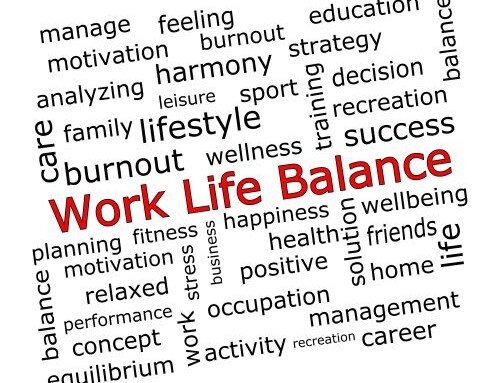Rejection is one of the most complex parts of business and life. It discourages morale when you hear that a sale was rejected, a budget was not approved, or a promotion was delayed. According to one study, rejection activates the same regions in the brain as physical pain. (1)
However, rejection also has the power to be used to achieve workplace or life goals. It can be a potent business tool once you learn to understand it.
Don’t let the fear of rejection stop you from achieving your goals. Here are three resilience strategies to use rejection to improve yourself, gain insights into others, and overcome the fear of rejection.
Identify Behaviors Tied to Fear of Rejection
As with much in life, the best method to overcome a problem is to acknowledge there is one. This starts by recognizing the signs and symptoms, showing that something might hinder your ability to tap your full potential. Fearing rejection can be a tricky problem to identify but may appear as (2):
- Taking on too many responsibilities.
- Wanting to please others, even to the point of having trouble saying “no” or hiding your true feelings/thoughts.
- Codependency is tolerating poor treatment or trying to please others, even to your detriment.
- Being a perfectionist, which might include spending too much time on getting the details precisely right or avoiding trying something new because you might not do well the first time you try it.
- Being disappointed when the vision in your mind doesn’t match up with what’s been produced.
- Fearing failure (e.g., criticism, shame, blame, etc.) or protecting yourself from taking too many risks.
- Struggling to set and keep personal boundaries.
- Having difficulty with compliments or positive attention.
- Accepting any criticism as part of your core negative belief system.
Seek the Learning Opportunities
Rejection isn’t pleasant, but it can provide insights for personal growth. After all, there’s always room for improvement. Focusing on making yourself a better person to reach your goals instead of what people think or do is always a win for you.
- Other people will have different perspectives. Only you know yourself, your goals, and your purpose. Don’t let someone else’s opinion determine your value or get in the way of your success. (4)
- You do not need others to validate your efforts as you accomplish your objectives. Work on strengthening your confidence, self-worth, and inner sense of value. (4)
- Look at rejection as a way you can learn more about yourself and identify things you can improve upon. (4) For example:
- If your idea is rejected, how can you present the idea differently and better?
- If your budget isn’t passed, what can you do differently next time to ensure it does?
- If a sale falls through, how can you be better prepared the next time so that you win?
- If you don’t get the desired promotion, are there interpersonal skills you need to learn so that those making decisions see more eye-to-eye with you? Do you need more experience or training?
- Be prepared to rebound quickly after rejection. Build your mental toughness and endurance. Try using methods such as positive self-talk. (4)
- Don’t let rejection define who you are as a person. Everyone experiences rejection, but this doesn’t mean rejection has to become your identity. (4)
Flipping Rejection into Acceptance
According to Attachment Theory (5), humans are wired for acceptance which is why rejection can pose a problem. The good news is that rejection happens to everyone at some time or another. A few methods to keep things in perspective and not become discouraged include (6):
- Build self-confidence by reminding yourself that you were really proud of yourself three or more times.
- Remind yourself how you are excellent at your job, know about your work, etc.
- Talk to someone who is your biggest champion, cheerleader, etc., and who always reminds you that you are good at life, your job, and being you!
- Eliminate all negative self-talk (e.g., “I talk too much.” Or “I didn’t prepare enough.”) and the imagining of worst-case scenarios (e.g., “If I don’t get the sale, I’ll miss my opportunity for promotion.”)
- Instead of catastrophizing, consider more realistic ideas such as counterarguments, backup plans, etc. Don’t let these go into worst-case scenarios. Instead, position these counterarguments, backup, or contingency plans in the best light possible so that you’re prepared and less anxious.
- Identify what makes you most fearful about rejection. (e.g., embarrassment, isolation, loneliness, abandonment, not being liked, not fitting in, etc.)
- Face the fear you worry about the most. You can speak to a licensed therapist, replace negative self-talk with positive self-talk, broaden social circles through volunteering or other extracurricular activities, learn how to ground through meditation or box breathing, or practice self-care.
Rejection, whether at work or in life, can lead to self-doubting. The fear of rejection will limit your ability to experience much of what life offers. Choosing to look at rejection as an opportunity to take on a challenge and overcome it can lead to growth and greater personal successes.
Discover more inspiring ideas for exciting experiences that boost morale and engage your people. Contact Gavel International for details.
_______________________
SOURCES:
- https://www.ncbi.nlm.nih.gov/pubmed/14551436
- https://www.choosingtherapy.com/fear-of-rejection/
- https://psychcentral.com/blog/the-fear-of-acceptance-are-we-afraid-of-being-rejected-or-accepted
- https://ecommercefastlane.com/finished-needs-copied-curation-5/
- https://www.youtube.com/watch?v=WjOowWxOXCg
- https://www.healthline.com/health/fear-of-rejection
This article was last updated on September 21, 2022
- Unlocking Excellence: The 7 Traits of Top Performers and Their Impact - April 14, 2025
- Why Content Is Essential for Driving Leads – and How to Create Content That Does - March 3, 2025
- Branding vs. SEO: Striking the Perfect Balance - February 10, 2025






